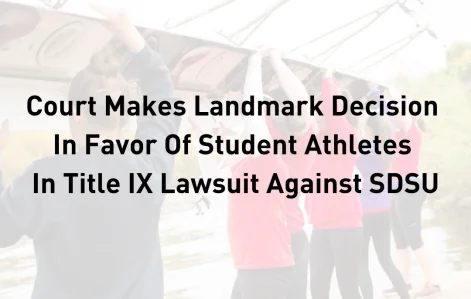Although an employer typically may not ask you about your disability or medical condition, employers may argue that it is appropriate during the COVID-19 pandemic if they can establish that COVID-19 is a “direct threat” making you more susceptible to an adverse impact.
Currently, federal and state regulatory authorities have released useful guidance for employers and employees to understand the impact of COVID-19 upon existing laws involving disability discrimination. One such resource, which we encourage you to consider, is the U.S. Equal Employment Opportunity Commission’s (the “EEOC”) guidance issued in an online article entitled, “Pandemic Preparedness in the Workplace and the Americans with Disabilities Act.”
The EEOC Guidance is directed to employers who are subject to the American with Disabilities Act (the “ADA”), which protects employees against disability discrimination. California’s Fair Employment and Housing Act (“FEHA”) is similar to the ADA in many respects, and California’s Department of Fair Employment and Housing (the “DFEH”) has also issued useful guidance.
As explained in the EEOC Guidance, generally during a pandemic that is akin to seasonal influenza or the 2009 H1N1 virus, it remains impermissible for your employer to ask you disability-related questions or to conduct a medical examination when you are asymptomatic. The EEOC has left open the question, however, whether COVID-19’s severity provides the ADA-covered employer with “sufficient objective information” to “reasonably conclude” that COVID-19 qualifies as a “direct threat” such that it may ask about other disabilities or medical conditions (non-COVID-19) that may make you more susceptible to adverse impact.
Employers May Try to Claim ‘Direct Threat
Indeed, COVID-19 being declared a “global pandemic” by the World Health Organization (“WHO”) means that some ADA-covered employers will undoubtedly seek to rely on the ADA’s “direct threat” exception that permits employers to make disability-related inquiries when the employee (whether due to the pandemic or another medical condition or disability) poses a “direct threat” such that there is a “significant risk of substantial harm to the health or safety of the individual or others that cannot be eliminated or reduced by reasonable accommodation.” See 29 C.F.R. §1630.2(r). According to the CDC, people who have serious underlying medical conditions may be at higher risk for more severe complications from COVID-19. As stated in the EEOC Guidance, COVID-19 itself will likely be held to meet the “direct threat” standard. Therefore, if you have COVID-19 symptoms, employers have been conducting screenings for COVID-19 and have somewhat more leeway in how they interact with employees concerning COVID-19 work conditions (the topic of other blog posts herein).
So while your employer (during the COVID-19 pandemic) may assert that it is permitted to take your temperature and ask about COVID-19 symptoms, it is unclear whether your employer may also ask you about non-COVID-19 medical conditions or disabilities that place you (or others) at greater risk for harm.
Whether your non-COVID-19 disability presents a “direct threat” will depend on:
- The duration of the risk
- The nature and severity of the potential harm
- The likelihood that the potential harm will occur
- The imminence of the potential harm.
The determination of the “direct threat” must be based on a reasonable medical judgment that relies on the most current medical knowledge and/or on the best available objective evidence. See 29 C.F.R. §1630.2(r). As noted in the EEOC Guidance, this means that the determination of a “direct threat” should not be based on “irrational fears” or “subjective perceptions.”
As stated in the EEOC Guidance, “[e]mployers should not assume that all disabilities increase the risk of influenza complications.” Examples offered in the EEOC Guidance of disabilities with a presumably lesser risk of complications are those impacting vision or mobility. Yet, careful thought illustrates how even more visually “hidden” disabilities should not be grounds for irrational fears of adverse risk. For example, it would be a subjective assumption that all persons with cancer may be immunocompromised in the same way. In practice, the immunocompromised status of a cancer patient often varies based on the type of cancer or the status of treatment.
Avoid Oversharing Sensitive Medical Information
Thus, while we believe it would be improper for employers to use COVID-19 as a pretext to inquire as to the disabilities or medical conditions of asymptomatic employees, employers will no doubt argue that there is a potential “gray area” with inquiries about disabilities or medical conditions that the WHO, the Centers for Disease Control (the “CDC”) or other health authorities have determined place you at heightened risk for severe complications from COVID-19.
Ultimately, even in light of the EEOC’s suggestion on this issue, the answer to this question is not “one size fits all” and will depend on individual facts and circumstances. We would caution against oversharing sensitive medical information, particularly when other options exist for employees, notably those in “non-essential” positions, to either work remotely or take leave (please see other blog posts on these topics).
Are You an Employee Concerned about an Employment Law Violation?
The attorneys of Haeggquist & Eck, LLP are relentless advocates for workers who endure mistreatment by their employers. Our attorneys have decades of combined experience helping people seek fair and just compensation when they’ve been taken advantage of at work.
Begin fighting for what you deserve by contacting Haeggquist & Eck, LLP online or calling (619) 342-8000 to arrange a free case evaluation.





